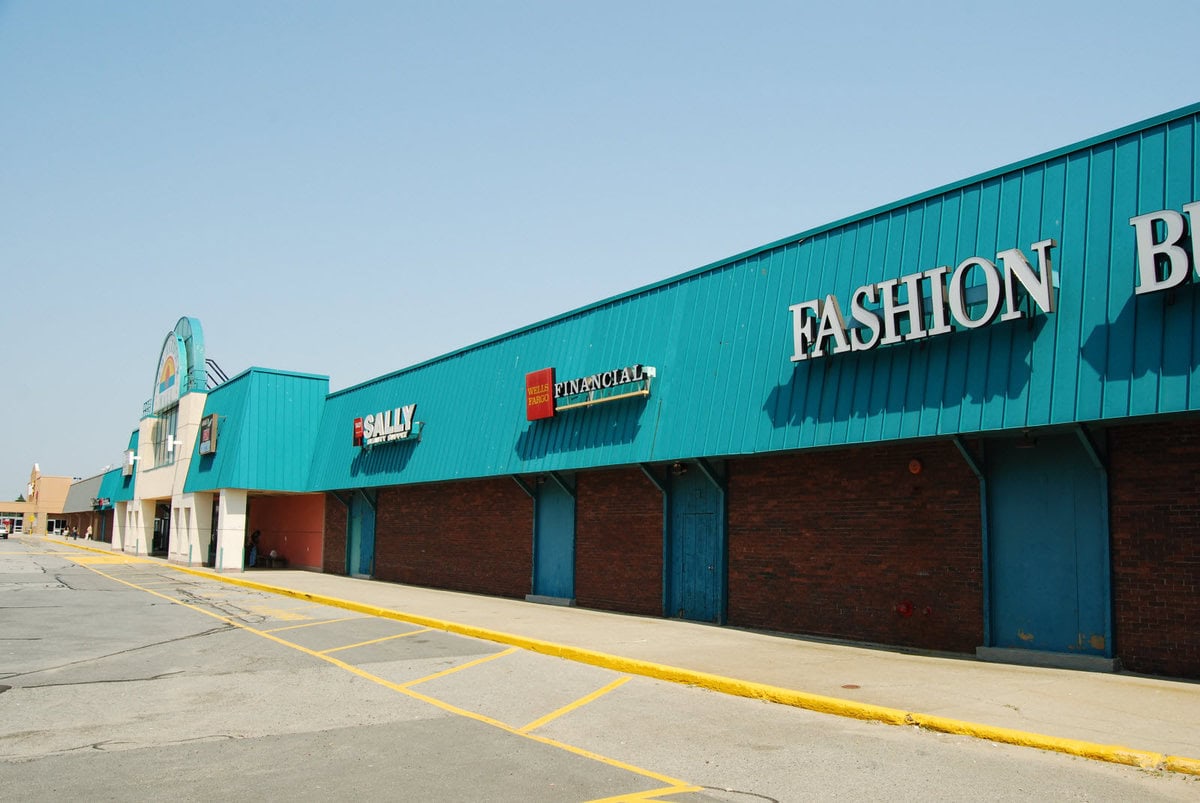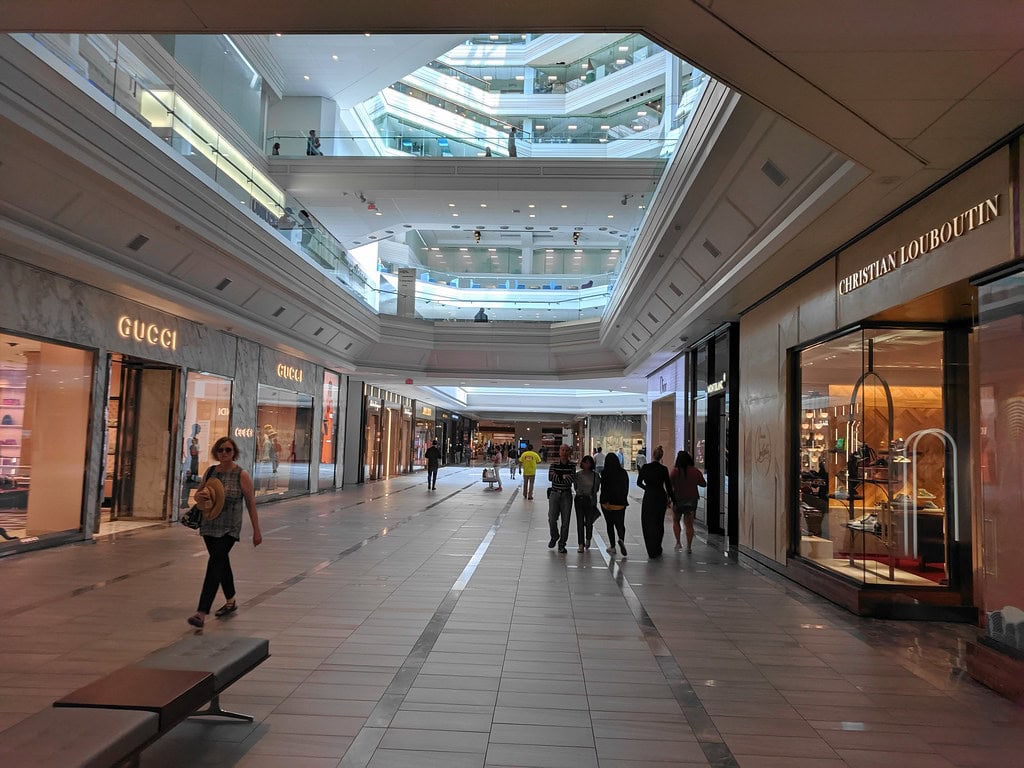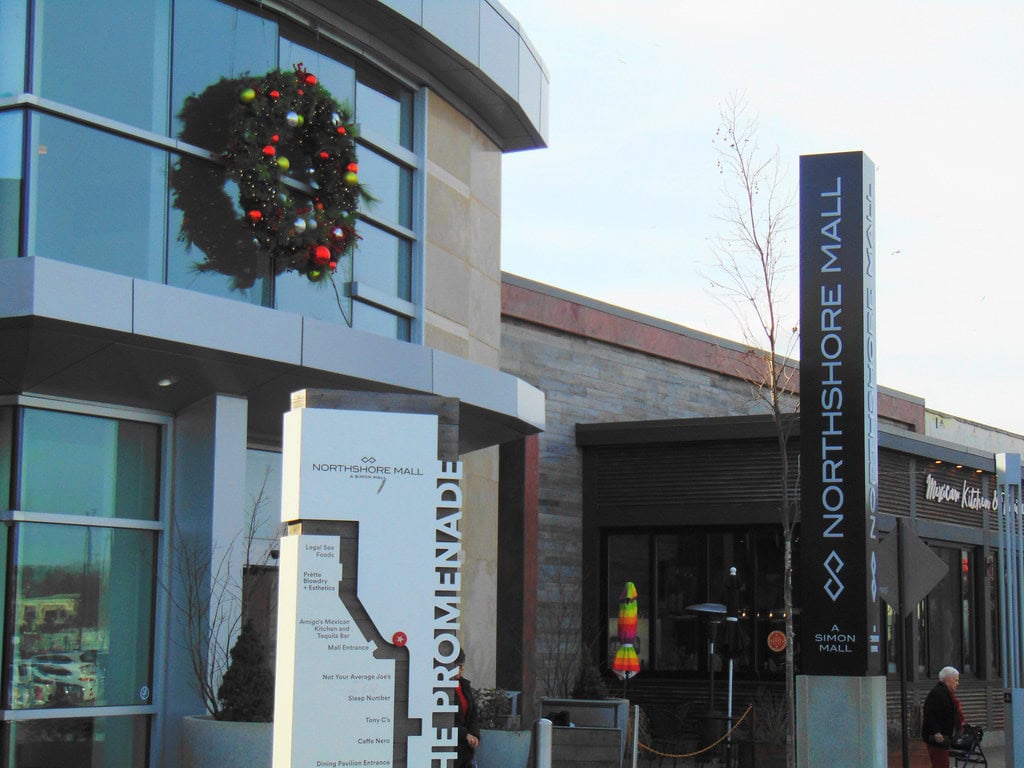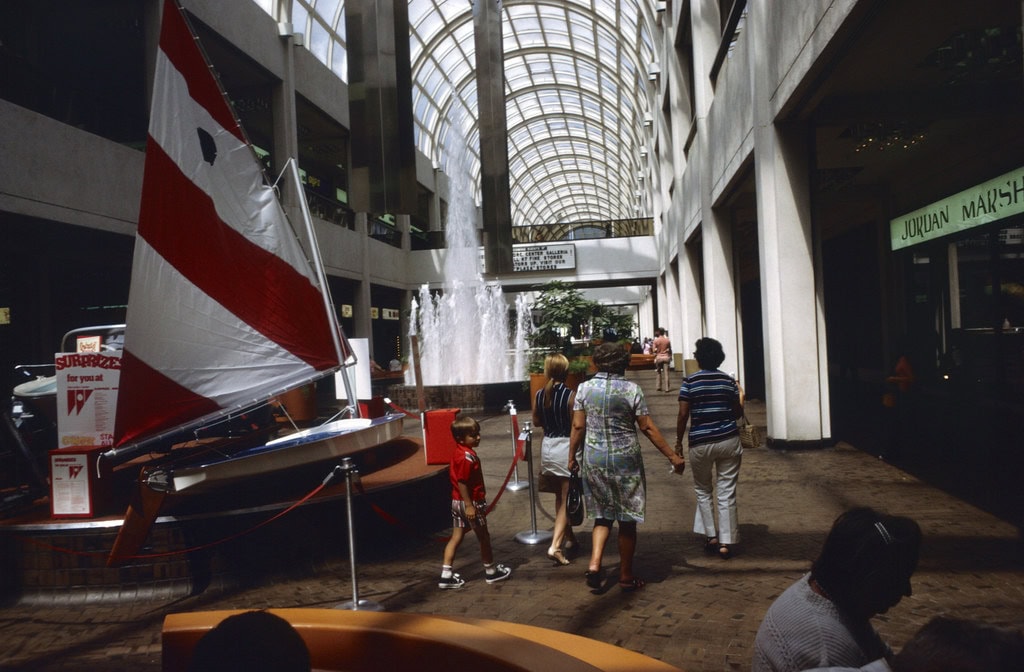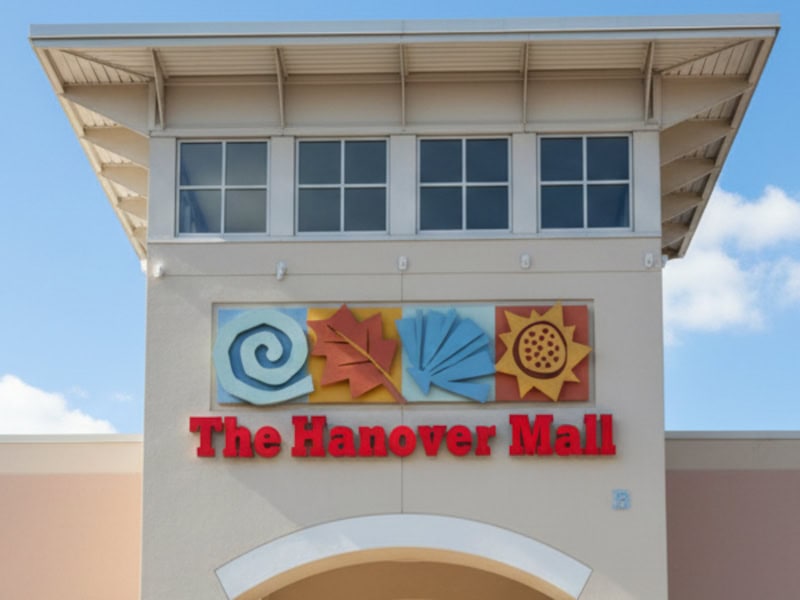A few years ago, anyone driving along I-190 near Worcester would have seen it: the wide, low profile of Greendale Mall, tucked behind Interstate with its faded signage and a rarely-filled parking lot.
Built in 1987, it was once a reliable stop for shoppers in central Massachusetts. Anchored by names like Lechmere and Marshalls, the place had its moment.
Then, slowly, the foot traffic faded. By 2021, the building was gone. In its place stands an Amazon distribution center.
This shift says more about retail than nostalgia can cover, and for those interested in things to do in Worcester, MA, the change marks the end of a specific era.
Retail Launch and Early Tenancy (1987-1999)
Greendale Mall opened its doors in 1987 on 7 Neponset Street in Worcester, Massachusetts. Its location was no accident.
Sitting near the interchange of I-290 and I-190, the site gave developers a direct line to shoppers from several nearby towns and traffic flowing through central Massachusetts.
Two anchor tenants kicked things off: Lechmere and Marshalls.
Lechmere, a regional chain known for electronics and home goods, helped set the tone.
Marshalls handled the off-price clothing and home items.
The early floor plan supported about 37 storefronts and a single main level, with a partial lower section that handled overflow.
By the late 1990s, TJ Maxx 'N More had entered the mix.
That brand was eventually converted into a combination of TJ Maxx and HomeGoods.
Traffic through the mall was steady at this point, though signs of fatigue in the mid-tier retail market were already becoming visible in national trade reports.
Still, for shoppers in the region, it was reliable.
Simon Property Group, a major national retail landlord, acquired the property in 1999.
That purchase added Greendale to a portfolio of regional malls managed under centralized operations.
No major changes were announced at the time, but the acquisition marked the beginning of a new chapter in the site's management.
The numbers still worked then, and the square footage had potential. The mall was stable for the moment.
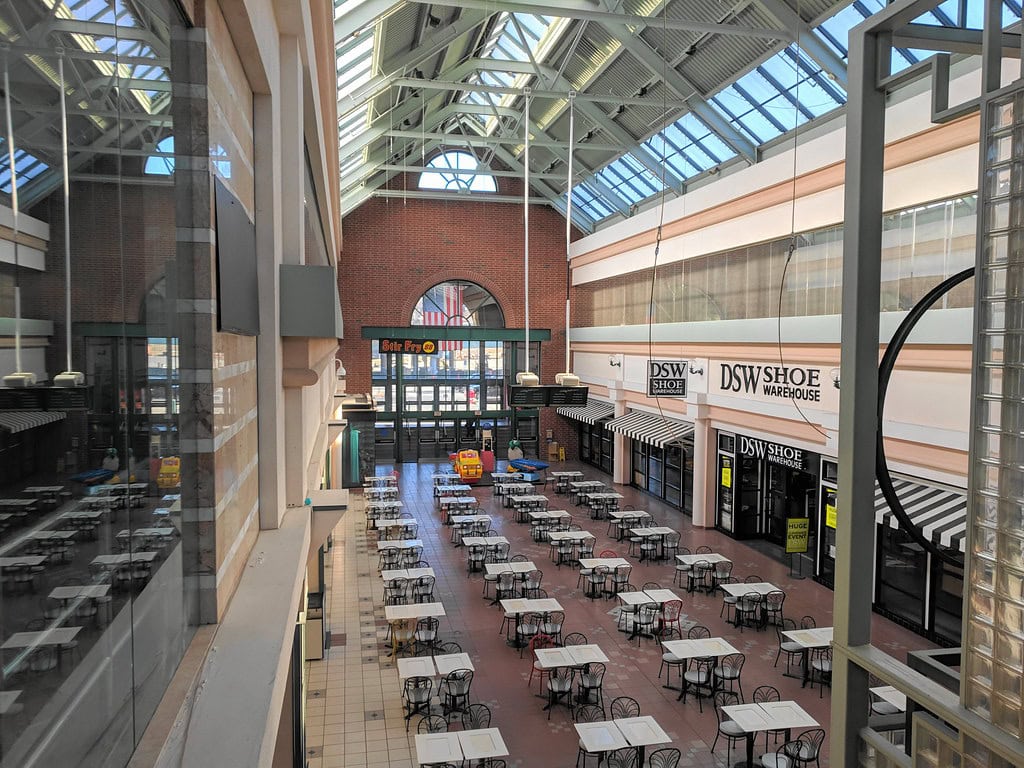
Ownership Shifts and Tenant Declines (2000-2015)
When Simon Property Group took over in 1999, Greendale Mall still pulled steady traffic, but cracks were forming under the surface.
National trends showed mid-tier department stores losing ground to discounters and online sellers.
Worcester felt it was slower than bigger markets, but the pull was there.
Lechmere closed in 1997, before Simon's acquisition, leaving a large gap that Best Buy eventually filled.
Best Buy officially opened its doors on-site shortly after, offering electronics and appliances during a time when home tech spending was rising.
Marshalls, another anchor, hung on longer but finally closed its location in 2007.
In its place, Big Lots opened in 2010 - a budget-friendly option that matched changing shopper habits but suggested a downgraded retail profile.
By October 2015, Simon Property Group officially stopped paying Greendale's debt.
That decision was a loud signal in commercial real estate circles.
Greendale Mall's appraisal in November 2015 put it at $14.7 million despite an outstanding loan balance of $45 million.
That mismatch spelled trouble. The mall's noteholder took back control.
There was no big sale announcement, no investor celebration - just paperwork changing hands behind the scenes.
Inside the mall, vacancies multiplied. Specialty stores closed or moved out quietly.
Seasonal tenants, pop-up stores, and deep-discount chains started filling spaces once held by national brands.
Greendale wasn't alone in this slide, but by 2015, it had become clear: the mall that once helped define retail in Worcester was struggling to justify itself.
Final Leasing Battles and Full Vacancy (2016-2021)
June 2016 brought a public auction, and almost no interest.
Greendale Mall changed hands for $11.8 million when Seyfarth Shaw LLP, the mortgage holder, took possession after no competing bids emerged.
Burlington-based KeyPoint Partners stepped in to manage the site and reassured the public that the mall would stay open, at least for the near term.
Reality proved harder to spin. On December 19, 2018, Big Lots announced it would shut down in January 2019.
Best Buy followed closely, confirming on September 9, 2019, that it would close in November of that year.
Two anchors were gone within a year, leaving only TJ Maxx and HomeGoods to carry the entire site.
Ownership changed again in December 2019 when Boston-based Finard Properties purchased the mall.
Initial plans circulated for a mixed-use redevelopment: retail, apartments, and office spaces all stitched into one project.
Local media noted the enthusiasm, but those plans shifted within months.
Finard Properties ultimately decided Greendale's future lay in logistics, not shopping.
In late 2020, TJ Maxx/HomeGoods announced relocation to Lincoln Plaza, planning a final move by April 24, 2021.
That left Greendale Mall officially empty - no tenants, no future as a mall.
Demolition followed in the summer of 2021, ending a retail store that had lasted thirty-four years.
By then, discussions about the Amazon distribution center had already started moving forward, reflecting where real estate priorities were heading fast.
Demolition, Redevelopment Deals, and Amazon's Takeover (2021-2024)
By the summer of 2021, demolition crews moved in.
The Greendale Mall structure that had once housed dozens of retailers was coming down, piece by piece.
The decision to bring Amazon to the site wasn't formally announced until late 2020.
Construction plans took shape quickly after that.
Amazon proposed a 121,000-square-foot last-mile delivery station focused on speeding up package drop-offs across central Massachusetts.
Site preparation started soon after demolition wrapped up.
Throughout 2022, the old mall footprint transformed rapidly.
Steel framing and warehouse siding replaced store entrances and skylights.
Trucks, not shoppers, would now roll through the area daily.
Project permits showed a design tailored for quick loading, multiple dock doors, and high-volume van operations.
The facility was operational by late 2024. On October 16, 2024, Amazon officially opened the Worcester Delivery Station.
While retail had once drawn families and bargain hunters to Neponset Street, the business model now leaned hard toward logistics efficiency.
Greendale Mall, as it had been known for three decades, was fully erased from the landscape, replaced by a warehouse built for speed, scale, and same-day service.
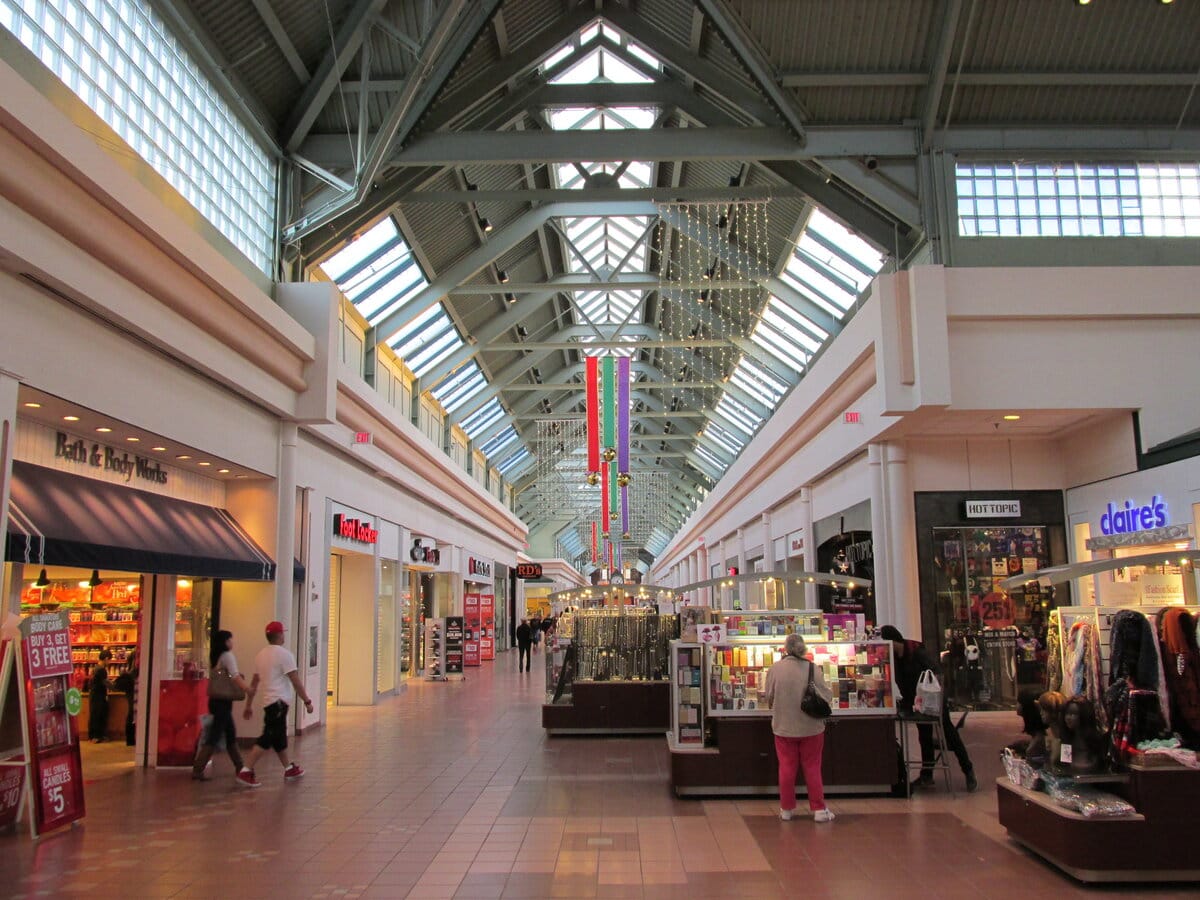
Local Retail Impacts and Urban Shifts After Mall Closure
The mall's closure in 2021 left a ripple across Worcester's retail sector.
With Greendale Mall gone, the city lost its last enclosed shopping mall.
Shoppers who once split time between Greendale Mall, Auburn Mall, and Solomon Pond Mall had one fewer local choice.
National retail chains that might have once pursued mid-sized regional spaces shifted toward standalone stores or skipped Worcester entirely in favor of nearby Marlborough and Shrewsbury.
Leasing agents working in the Worcester market saw more demand for small footprints - fast-casual dining, fitness clubs, and service-based tenants rather than traditional apparel or department stores.
Residents posted mixed reactions online throughout 2023.
Some appreciated the uptick in industrial jobs tied to Amazon's opening.
Others criticized the loss of retail options and worried about increased truck traffic near I-190.
City Council meeting minutes from early 2024 captured debates about zoning, road improvements, and tax incentives tied to the warehouse deal.
Meanwhile, smaller retail centers like Lincoln Plaza picked up some spillover from Greendale's shuttered stores.
TJ Maxx and HomeGoods' relocation to Lincoln Plaza in 2021 gave that site an immediate traffic boost.
Retail brokers pointed to steady leasing inquiries at strip centers, but no developers pitched new mall-style projects.
By 2025, it had become clear that Worcester's commercial landscape wasn't just aging - it was realigning completely.
The closing and replacement of Greendale Mall told a story that played out in many mid-sized cities across the Northeast, but few examples were as complete or as fast as Worcester's.

🍀

